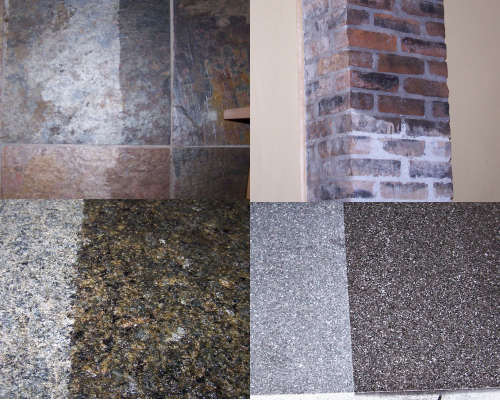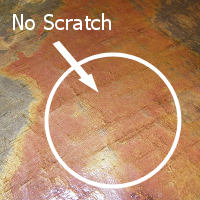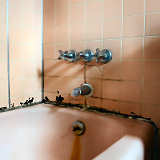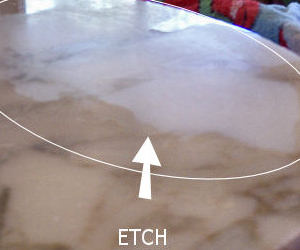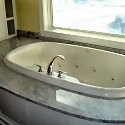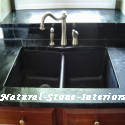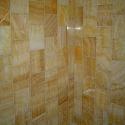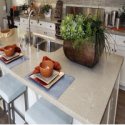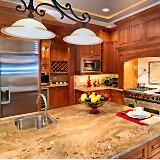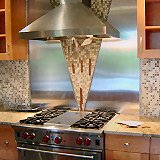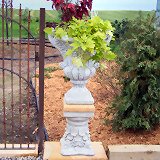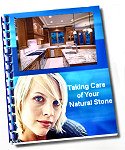 | |||||||||||||||||
|
Loading
| |||||||||||||||||
Natural Stone InformationBasic Stone InfoThis is basic stone information to help you select the type of natural stone which might work best for you. A quick read will give you a general idea of the differences in stone. You'll have an idea of what to expect from the stone you decide on.
Color is very important in stone selection. It's personal and it's fun. Color makes a statement. But before browsing through colors, know what to look for when selecting a natural stone. What fits your lifestyle. The color, the texture, or the look you want may eventually outweigh the benefits of using another stone type. That's fine as long as you know what to expect from the natural stone you choose.So, what do you look at before colors?
Natural Stone is classified into TWO MAIN categories by their mineral composition:
These stones will have a greater resistance to acids, such as orange juice and carbonated beverages. They will also have a higher resistance to high alkaline detergents. This means they will NOT etch or show marks and dull spots as easily - IF EVEN AT ALL - as calcareous stones. Over all, these stones are pretty durable and easy to maintain. Siliceous stones are used on interiors, exteriors, commercial flooring, exteriors for buildings and are usually great for countertops. They tend to stand up to the use and abuse of an active household. Examples of siliceous stones: granite, serpentine, slate, soapstone, and quartz-based stones. Calcareous stones are composed mainly of calcium. These stones are also durable. But they are more sensitive to the acids found in alcohol, lemons, citrus juices, colas and vinegar.
In general, these aren't the best choice for kitchen countertops or areas of frequent use and abuse. If you decide to use a calcareous stone, make sure to use stone friendly cleaners to prevent etching and dust more often to prevent scratches. Examples of calcareous stones: limestone, marble, onyx, and travertine.
The rate of absorption tells you how easy your stone will stain. Natural stones with a high rate of absorption will stain easier than stones with a lower rate. Porosity refers to how open or how many small holes are in the surface of the stone to allow liquids to penetrate it. Porous stones will have a higher rate of absorption. These stones need to be sealed to help repel staining. Not all stones are prone to staining! How do you know if the ONE you have is? How do you know if and when you should seal? Here's an easy way to know.
Hardness levels vary quite a bit when it comes to Natural Stones. The hardness is determined in part by the mineral composition and by the density of the stone. Granites generally have good hardness characteristics as do SOME limestone and marble. How do you know how hard your stone is? Look at Moh's Scale of Relative Hardness. This simplistic scale was invented in the early 1800's to measure the hardness of minerals. You could also get a 'general idea' of how well your stone choice would stand up by dragging a knife blade across it or tossing your keys on it a few times. Definitely do this one before you buy it! You DON'T want to do this one on your installed stone. Get a scrap and test. All in all, the harder stones stand up better to frequent use and to heavy, hard and sharp objects. Therefore, harder surfaces would have fewer scratches, if any, over time.
Common Sense. Yep, simple common sense! Sometimes we see a stone, fall in love with it and all RATIONAL goes out the window! Not such a great idea when we plan to live with the stone for awhile. For Example: You're replacing your kitchen countertops and absolutely love the look of Crema Marfil. If you have a bunch of boys, a couple of dogs, you cook every night and you work full time, you might want to rethink this choice. There are granites which are more durable and don't require the same maintenance as this stone will in your kitchen. On the other hand, if you like the aged look, this may be the perfect stone for you. Regardless of the type of natural stone you choose, it's beautiful, unique, and durable. Natural stone will last your lifetime and more. Choose wisely. Choose what you love.
You'll find More Help On Choosing Stone Below:
Return from Natural Stone Information to Choosing Natural Stones Return from Natural Stone Information to Natural Stone Interiors Home |
|
||||||||||||||||
|
|
|||||||||||||||||
|
Top Of Page | Home Page | What's New | Free Estimates | Site Map | Privacy Policy | Advertising | Contact Us | | |||||||||||||||||
|
Copyright © 2005 - 2015 Natural-Stone-Interiors.com - All Rights Reserved.
|
|||||||||||||||||
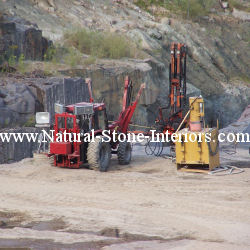
 Siliceous stones are composed of silica or quartz like particles.
Siliceous stones are composed of silica or quartz like particles.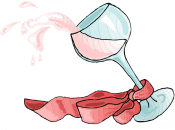 They
are also more sensitive to strong alkaline detergents found in some cleaning products.
This means they will usually
They
are also more sensitive to strong alkaline detergents found in some cleaning products.
This means they will usually 